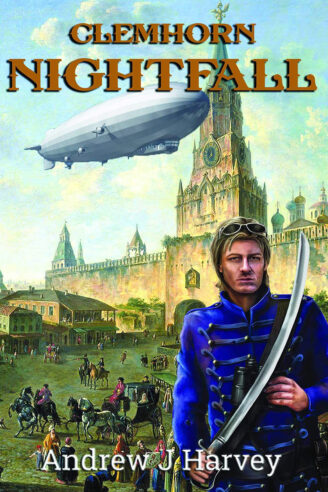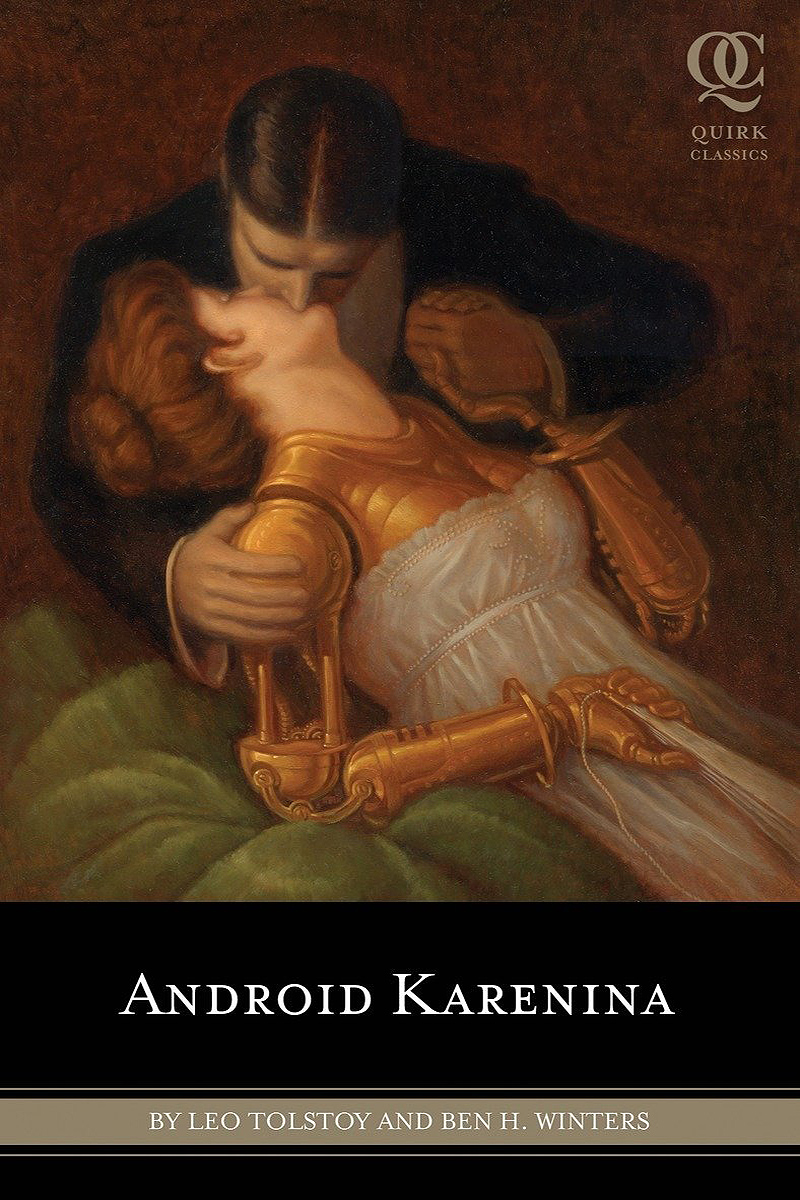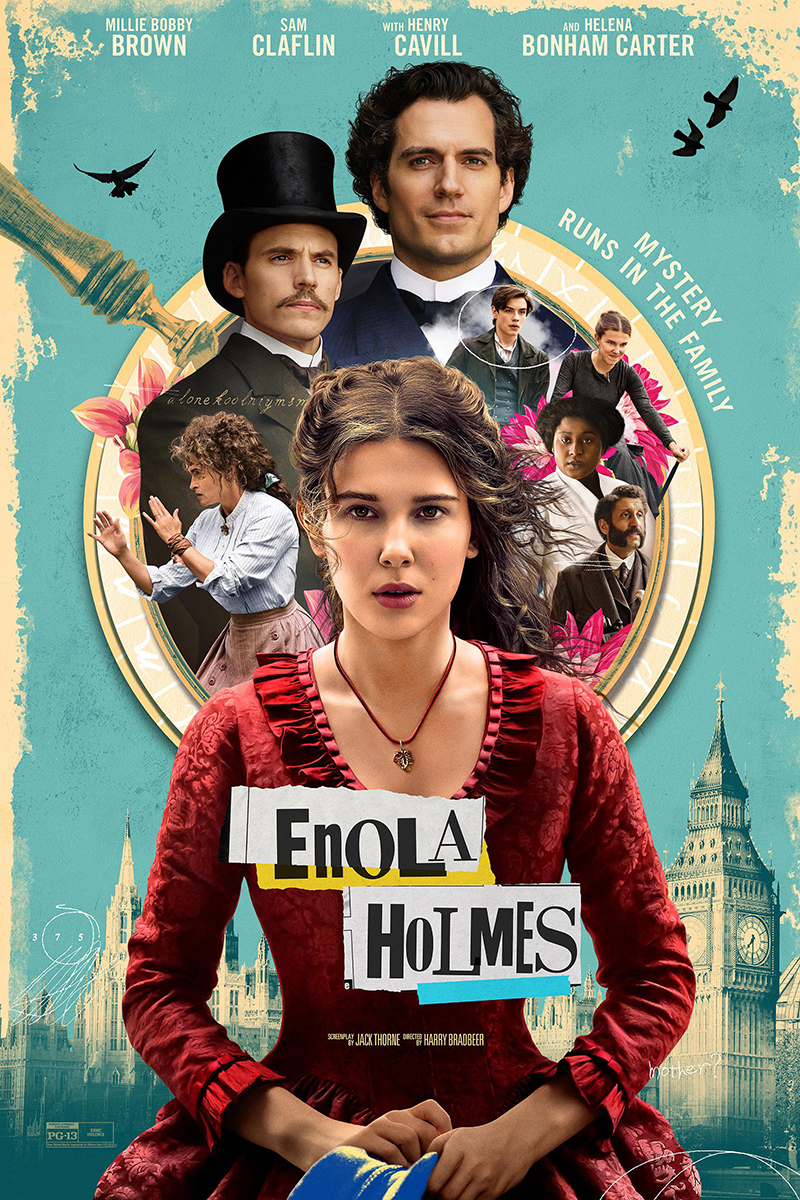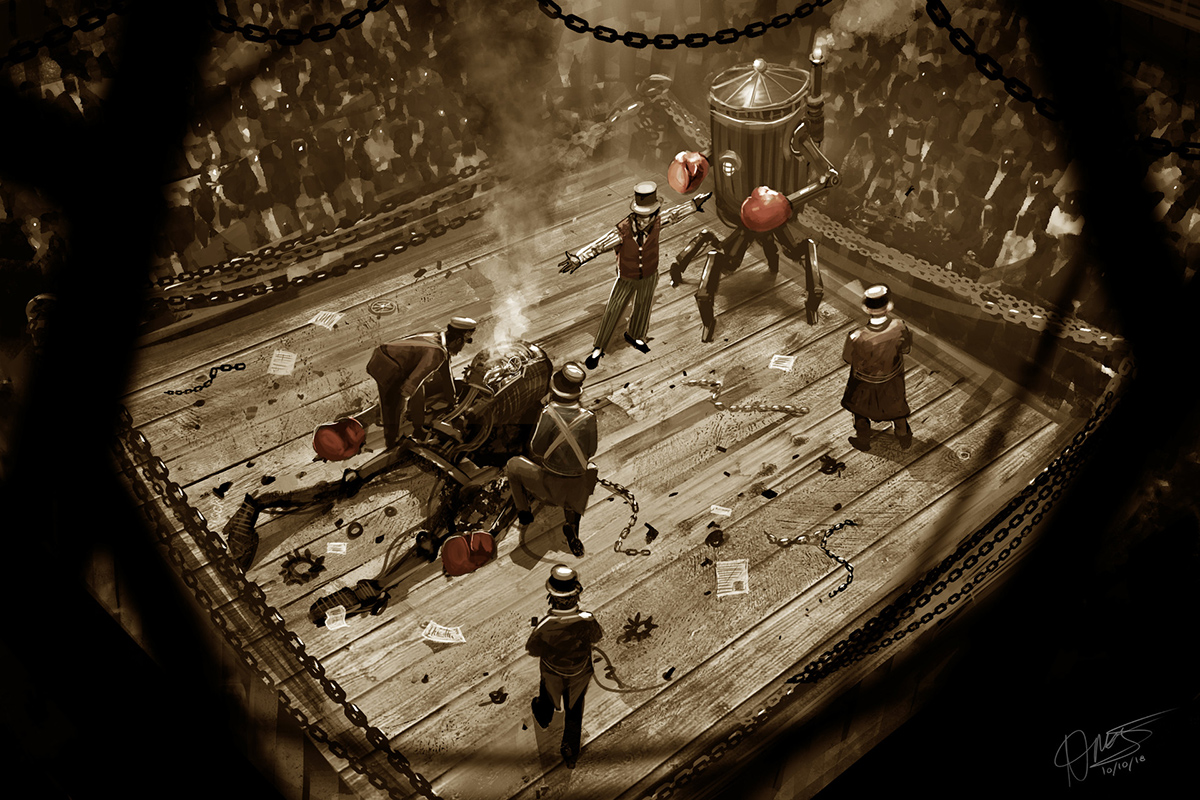For decades, science fiction has dreamed of stepping through portals and entering new worlds. It were these sort of fantasies that birthed the modern alternate-history genre. To this day, stories are told with this device, such as Seanan McGuire’s Wayward Children series and Tom Sweterlitsch’s The Gone World.
Here, I will discuss a modern example of this subgenre: Nightfall, the first book in Andrew J. Harvey’s Clemhorn series.
The book follows various members of the Clemhorn family in high places of the Cross-Temporal Empire, a polity which rules multiple alternate incarnations of Earth. Each of these worlds is run by a bureaucratic hierarchy, which meet in the central imperial government. The Clemhorns are aristocrats, related to leaders of this empire. Through their eyes, they experience a massive upheaval in the empire, with threats from within and without.
You have more or less the entire gamut of aristocratic characters represented among the protagonists, from loyal soldiers to academics to the one artist dilettante in the family. They have some good dialogue between them, and some witty banter. Harvey doesn’t reduce his female characters to trinkets in the way other writers might.
This is a war story, and as such there are action scenes, although not as many as you may expect. Harvey does this well; there’s an energy to these scenes that puts you in “the havoc of war and the battle’s confusion,” to quote Francis Scott Key.
In more fundamental ways, though, I found Harvey’s novel to be deeply problematic. He is trying to tell two types of stories at once: an alternate-universe story and a story about imperialism. I’ll take those one by one.
The novel makes much of how this empire stretches across different dimensions into worlds with vastly different histories. We visit a number of them, and meet a number of people from these worlds. The problem comes with how these characters are written: they are at best guides for the Clemhorns in whatever war they are fighting. They are not fleshed out and they have little agency.
This goes beyond characters. There are a few infodumps of history for some of these worlds, but other than that Harvey never bothers to make these worlds feel well and truly alien in the way the best alternate history does. These worlds are merely backdrops for action. They never feel like places real people live in.
This robs the novel of various potentially interesting elements. What many great time-travel stories do well is culture clash. As John Birmingham did in his Axis of Time series, Octavia Butler in Kindred, L. Sprague de Camp in Lest Darkness Fall and Eric Flint, among others, in the 1632 series, culture clash between temporally distinct people can be fascinating. It can reveal stark differences in values and assumptions between eras, and from there provide compelling character drama.
Nightfall isn’t interested in such things.
Even more jarring is how Harvey approaches the fundamental conflict of his setting: an overextended empire meeting opposition internally and externally. The series which this novel starts is entitled the Clemhorn series, and that fact, more than anything else, reveals its fatal flaw.
The Cross-Temporal Empire is like all empires, in that there is a political elite that runs and maintains a system that privileges that class at the expense of those outside it. In so much speculative fiction, “empire” is an aesthetic choice, drawing to mind royalty and courtly splendor and fancy uniforms. In reality, empire is far less rosy. Empires, by virtue of their inherent hierarchy, are violent. They are destructive. They annihilate cultures and slaughter innocents.
The Clemhorn setting gives ample opportunity to explore imperialism. Other time-travel stories do this; Bruce Sterling and Lewis Shiner wrote a poignant story entitled Mozart in Mirrorshades about corporate exploitation of a parallel timeline. Harvey creates a story where plenty of such would be happening, and had many opportunities to weave a compelling story out of it.
Instead, he chose to focus on the personal drama of the Clemhorns. There is relationship trouble and spats among families, affected only so much by the world-shaking events. It is here that the elite status of the Clemhorns hampers the story; they are insulated from the consequences of their power. Whatever they do will have a profound effect on someone — except the Clemhorns.
Imagine reading a story about the annihilation of the indigenous population of California told through the eyes of legislators in Washington or Sacramento and militia and army commanders far from the killing. They make decisions that lead to the destruction of entire peoples, but focusing only on this remote point of view insulates the reader from the impact of their decisions. The emotional effect is almost completely negated. The victims become mere signifiers. In other words, less than human.
This is the problem with many works of fiction that focus on elite figures: they put those with power front and center and ignore what makes those with power interesting. On the Sea Lion Press blog, I critiqued Curtis Sittenfeld’s novel Rodham along these lines, and similar critiques apply to Harvey’s novel. In this world, the Clemhorns are interesting. Why are they interesting? Because they have power. Therefore, the Clemhorns are the most compelling narratively when the effects of their power are seen. Unfortunately, the novel is totally uninterested in interrogating this aspect of the Clemhorns, instead expecting us to feel that the details of their personal lives are enough. They are not.
The morality of imperialism is never confronted in any serious way. You never really get an idea why these other worlds are in revolt; there are no viewpoint characters from the interdimensional subaltern. By virtue of serving an empire at the rank that they do, the Clemhorns are at least complicit in heinous cruelty, in the destruction of cultures, in the slaughter of children, in the pilfering of natural and cultural wealth. They are complicit, because that is what all empires do. That gives Harvey a moral complexity that is ripe for dramatic exploitation, but he barely touches it.
There are other missed opportunities. So much interesting background information is confined to an appendix. This information could have made the whole experience richer, revealing character and setting. There is a brief mention of a first contact in Mexico that ends dramatically; had this been the novel, I would have read it voraciously. Perhaps most jarringly is the death of an important character told third-hand. We should have been there.
Nightfall reads as an old book, and not in a good way. It is a book wrapped up in the Orientalist “mighty whitey” tropes of nineteenth-century adventure literature, in which conquerors are the only people worth exploring in detail. The subalterns, the “wretched of the Earth” (as Frantz Fanon put it, although in this case “Earths” may be more appropriate) are barely even characters, existing only to further the stories of the conquerors. The effects of the social system that the Clemhorns work to uphold is completely neglected. As someone of Filipino heritage, I can imagine a hypothetical American novel from the early twentieth century that treats Filipinos in much the way that this novel treats anyone who isn’t a Clemhorn or otherwise wealthy.
In his interview with Sea Lion Press, Liam Connell spoke of how we need more alternate history about “peasants, not kings.” Nightfall is an example of the pitfalls of writing solely about metaphorical kings. As I argued in an earlier essay, “the king makes policy, and the peasant suffers policy.” An empire is, in one sense, an organized system of meting out massive suffering. The Clemhorns serve that system, but its suffering goes almost entirely unaddressed.





